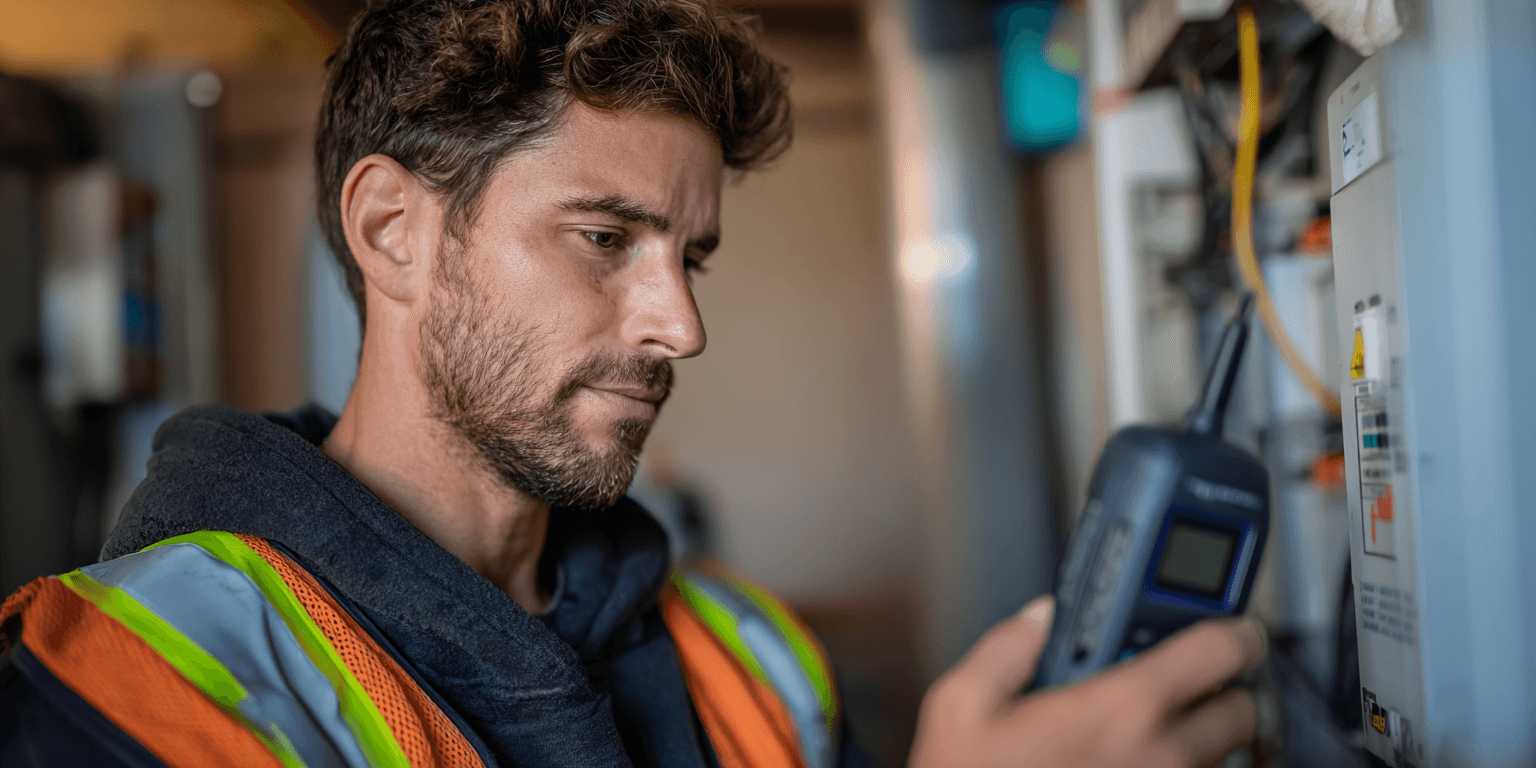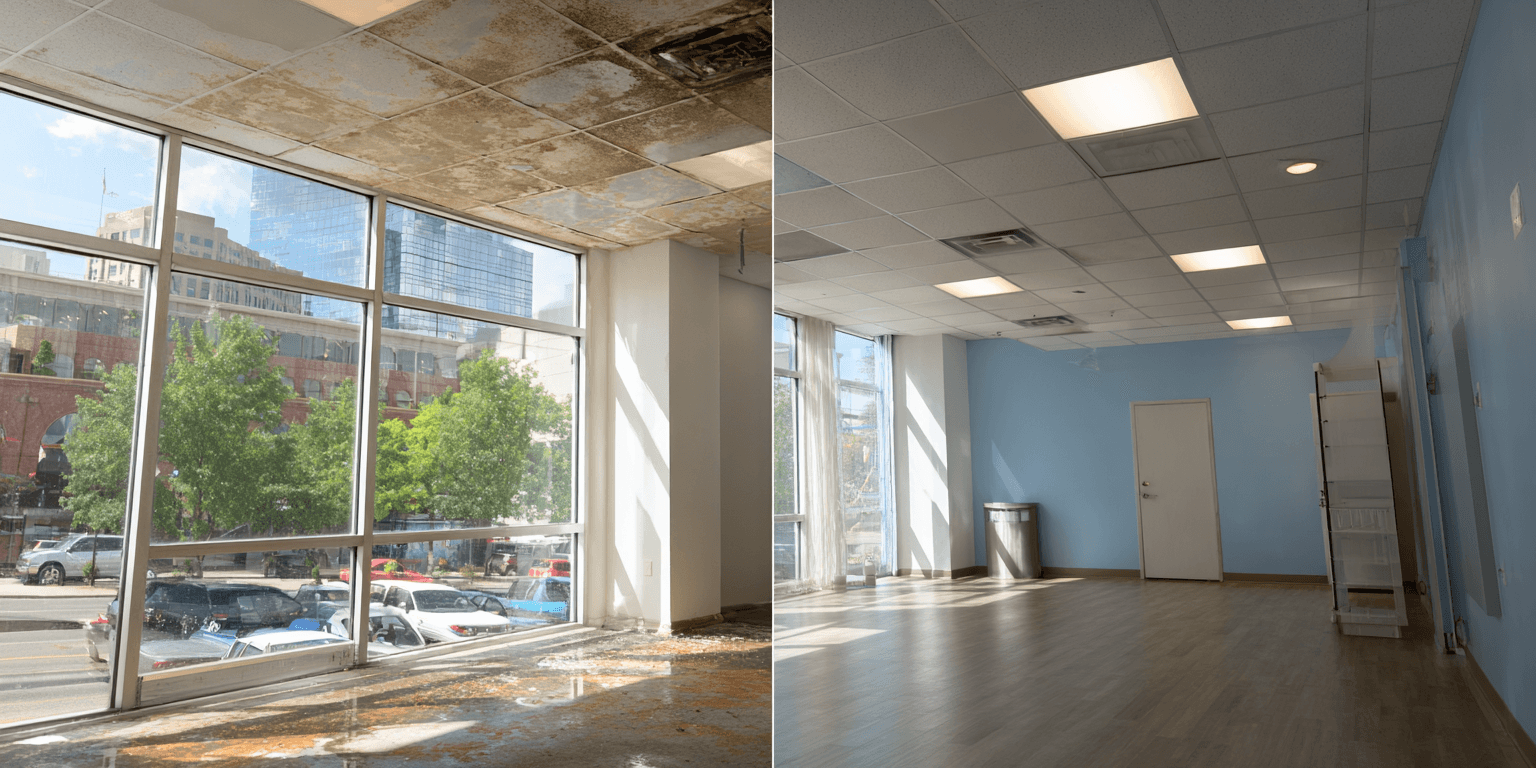Before signing a commercial lease, it's essential to know exactly what you're committing to—whether you're a landlord offering space or a tenant preparing to move in. A pre-lease commercial inspection is more than a courtesy walk-through. It's a detailed, third-party evaluation of the property's systems, structure, and safety standards. This process protects both sides by documenting the condition of the space before occupancy begins, helping to prevent disputes, delays, or unexpected repair costs later on.

For landlords, inspections validate that the property is lease-ready and compliant with codes. They provide a defensible record of the property’s condition at the time of lease, reducing exposure to claims of pre-existing damage. For tenants, a pre-lease inspection offers reassurance. It ensures that HVAC, plumbing, electric systems, and fire safety measures are in proper working order. It also helps uncover hidden concerns—like roof damage, mold, or outdated wiring—that might otherwise go unnoticed until operations are underway.
Both parties benefit from the transparency that inspections bring. With an agreed-upon, professionally documented record in place, trust grows between landlord and tenant. And if disagreements arise during the lease, the inspection report serves as a reliable point of reference.
A commercial pre-lease inspection is a top-to-bottom review of the property’s key components. The focus extends beyond surface appearance and digs into systems that directly impact safety, functionality, and legal compliance. The inspection typically covers the condition and performance of the roof, foundation, HVAC system, electrical panels, plumbing, windows, doors, and insulation. Inspectors also assess structural integrity and look for any signs of leaks, damage, or pest activity.
Safety compliance is a central concern. Fire alarms, extinguishers, exit signs, and emergency lighting are checked to verify they meet current regulations. Accessibility features—like ADA-compliant entrances, restrooms, and parking—are also reviewed. These elements aren’t just ethical and practical necessities; they’re also legal obligations that can’t be ignored.
Inspectors document their findings with a written report that includes photos, timestamps, and descriptions of any issues. This report often becomes an attachment to the lease, clearly stating the condition of the premises and outlining which party is responsible for addressing noted concerns.

Setting up a pre-lease inspection begins with choosing the right professional. Commercial property inspections differ significantly from residential ones, so it’s important to hire someone with experience in your specific type of property—retail, industrial, office, or mixed-use. Credentials, insurance, and strong reviews from past commercial clients are key indicators of quality.
Once a date is selected, ensure the property is accessible and all utilities are on so that systems can be properly tested. Both landlord and tenant—or their representatives—should attend if possible. This allows questions to be addressed on-site and helps avoid misinterpretation later.
After the inspection, both parties should review the report together. It’s the perfect moment to negotiate responsibilities: Who will repair what? Will the landlord upgrade systems, or is the tenant agreeing to accept the property as-is in exchange for concessions? These agreements should be clearly written into the lease or added as an official addendum.

For landlords, a pre-lease inspection creates a detailed record that can shield against future liability. It shows due diligence and transparency, which enhances credibility and tenant trust. If disputes over property condition arise later, the report provides hard evidence to resolve disagreements quickly and fairly.
The inspection also gives landlords a chance to identify and correct issues early, before they become emergencies. Planned repairs are often less costly and disruptive than emergency fixes once tenants are in place. Addressing maintenance needs upfront supports better long-term property value, attracts high-quality tenants, and helps reduce vacancy rates over time.
Tenants gain peace of mind by knowing the property has been professionally assessed before move-in. This is their chance to ensure the building is safe, operational, and compliant. Discovering problems now allows tenants to request repairs or negotiate improvements before lease obligations begin.
Equipped with the inspection report, tenants can also protect themselves from being held responsible for pre-existing issues when the lease ends. It's a critical safeguard, especially in longer-term or triple-net leases where tenants assume responsibility for many aspects of building upkeep.
Perhaps most importantly, the inspection provides a platform for clear, informed negotiation. Whether asking for rent adjustments, scheduling needed repairs, or setting expectations about future maintenance, tenants start their lease with clarity and control.
At the heart of every successful lease is a productive relationship between landlord and tenant. Pre-lease inspections help foster that relationship by establishing trust and accountability from day one. When both parties share the same understanding of the property’s condition, miscommunication is minimized, and cooperation becomes the norm.
Rather than relying on assumptions or verbal promises, the inspection offers a shared reference point that guides maintenance decisions, informs responsibilities, and ultimately strengthens the overall leasing experience. This proactive, professional step is a foundation for collaboration—not conflict.
A pre-lease commercial inspection is not just a checklist—it’s a powerful tool for ensuring safety, protecting investments, and clarifying responsibilities. It provides clear, objective documentation that reduces legal risks, avoids repair disputes, and empowers both landlords and tenants to make well-informed decisions before any lease is finalized.
Taking this step signals professionalism and respect on both sides. It leads to faster negotiations, smoother move-ins, and fewer headaches throughout the lease term. If you're preparing to lease commercial space—whether as a property owner or a prospective tenant—don’t skip the inspection. Schedule one today and enter into your next lease with confidence, clarity, and peace of mind.